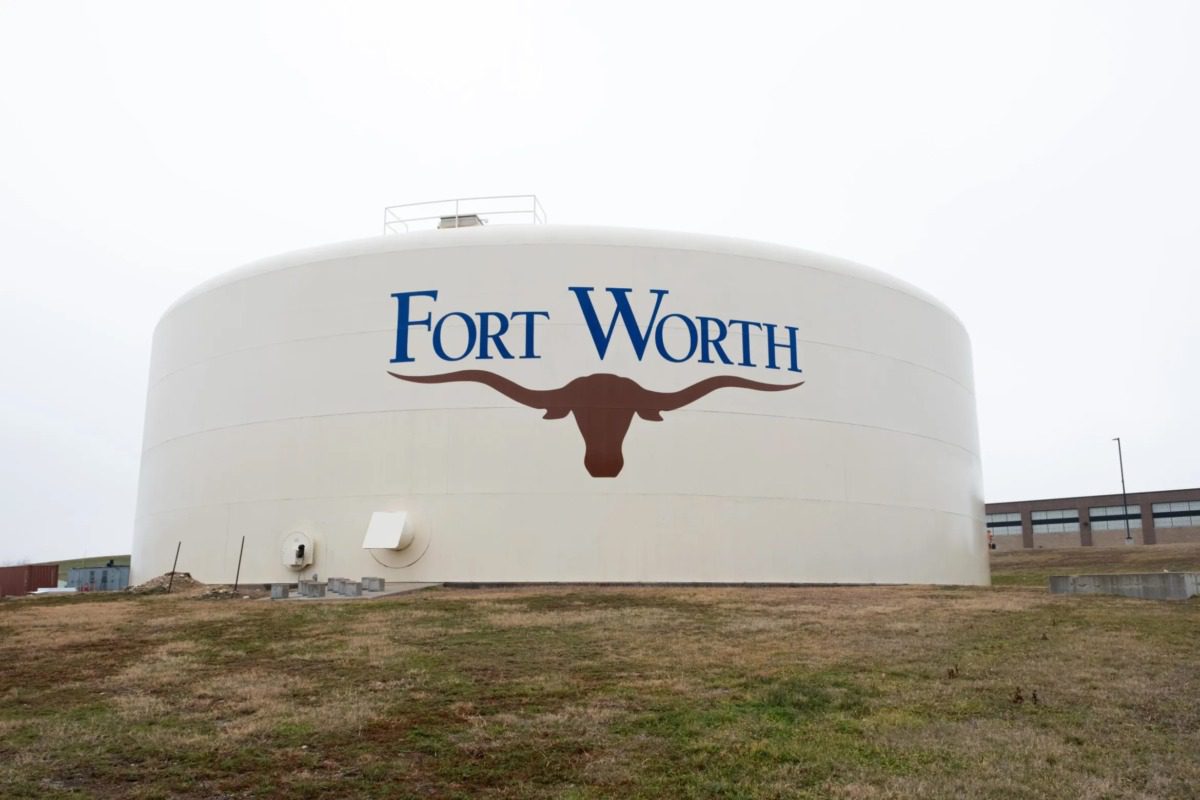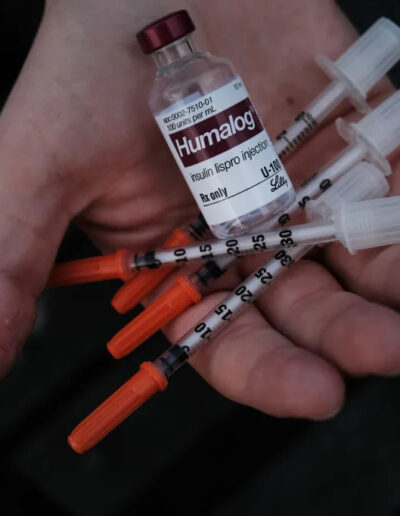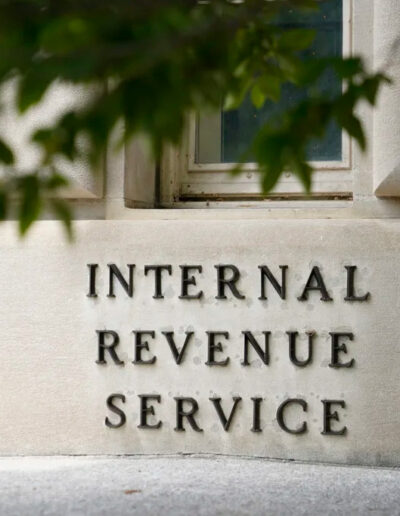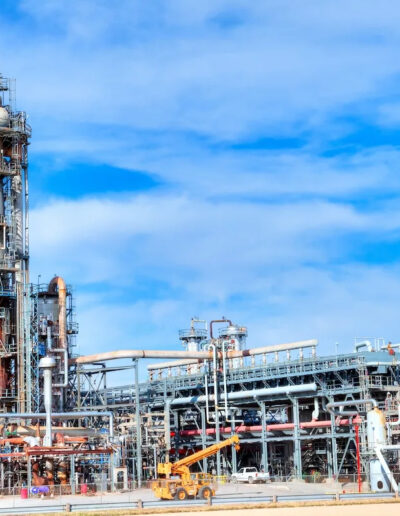
Fort Worth has a total water treatment capacity of 497 million gallons per day for drinking water and 166 million gallons per day for wastewater. Credit by: Camilo Diaz for Fort Worth Report
With the Fort Worth area’s population expected to grow by more than half a million over the next 20 years, plans to expand pipelines and water treatment plants to meet the city’s growth are moving forward.
During a presentation to Fort Worth City Council Tuesday, water department director Chris Harder said most of Fort Worth’s growth is happening in the west and northern parts of the city, citing rapidly growing developments such as Walsh and Veale Ranch. About 25,000 lots in and outside of Fort Worth’s city limits are currently in development negotiations, according to Harder.
Calling the city’s growth a “substantial challenge” for the water department, Harder said staff projected a population increase of about 550,000 from 2025 to 2045 throughout its service areas, with 300,000 of that expected to happen within the next decade.
The westside’s water treatment plant and transmission lines currently supply 18 million gallons of water a day. With an expanded plant capacity and a new main transmission line, the water department could provide up to 40 million gallons a day by 2026, according to Harder.
With City Council approval to expand the plant, the water department can supply 26 million gallons of water a day to westside residents starting this spring.
As for the northside, the water department is focusing on providing water to the area more efficiently and eliminating the risk of main breaks, in addition to increased water supply. New transmission lines in the northside, which gets its water from the downtown Holly treatment plants, would mitigate pressure on existing cast-iron pipes, said Harder.
The water department has already begun construction to replace some of those cast-iron pipes, according to Harder. That project will cost the city $20 million.
Construction begins on controversial north Fort Worth pipeline
Last year, the water department proposed a new 54-inch water transmission main pipeline. Now under construction, this pipeline aims to relieve pressure in pipes running from downtown to the northside tank and pump station.
The pipeline runs from the Eagle Mountain water treatment plant, just above the northside pump station, to the intersection of Blue Mound Road and Willow Springs Road in Haslet.
Plans for the pipe received opposition from residents in 2024, with most worried about how construction would ruin existing parkland and neighborhoods in the Eagle Ranch community.
During his Feb. 18 presentation, Harder said there are development sites in far north Fort Worth that are dependent on the 54-inch pipe.
Slated for completion by 2027, developers asked the water department to get the pipe fully installed as quickly as possible, said Harder.
The 54-inch pipe is just one of the initiatives the water department is taking up to better serve far north Fort Worth.
The Eagle Mountain plant currently delivers 105 million gallons of water per day. On April 3, the water department will begin taking bids to find a contractor for the expansion of the plant. The department ultimately plans on getting the plant to supply a total of 200 gallons a day, but will start with an additional 35 million gallons, according to Harder.
Expanding the plant is projected to range from $200 million to $250 million and the 54-inch pipeline will cost about $100 million, according to Harder.
“The investment that we’re going to be making in the near term is going to allow us to serve a customer base for the next 20 years,” said Harder.
As part of the far north expansion project, residents can also expect to see new ground storage tanks and a 24-inch pipeline near Sendera Ranch in Haslet.
Harder did not provide a specific timeline on when the far north plant expansion, storage tanks and the 24-inch pipeline would begin construction, but said he expects to see funds for the project within the next few months.
North Fort Worth residents used 750K gallons in violation of ordinance
Aside from water expansion, the water department continues to enforce its water irrigation ordinance. The ordinance prohibits residents from watering their properties or using irrigation systems between 10 a.m. and 6 p.m. and watering during precipitation.
Residents in violation can expect to see a starting fine of $25. That amount can go up on the second and third offense.
From June to August 2024, far north residents used 750,000 gallons of water in violation of the ordinance, according to Harder.
While the fines are not meant to be “punitive,” Harder said, the water department anticipates to see fewer violations this summer because more people are aware of potential penalties.
Nicole Lopez is the environment reporter for the Fort Worth Report. Contact her at [email protected].
At the Fort Worth Report, news decisions are made independently of our board members and financial supporters. Read more about our editorial independence policy here.




















